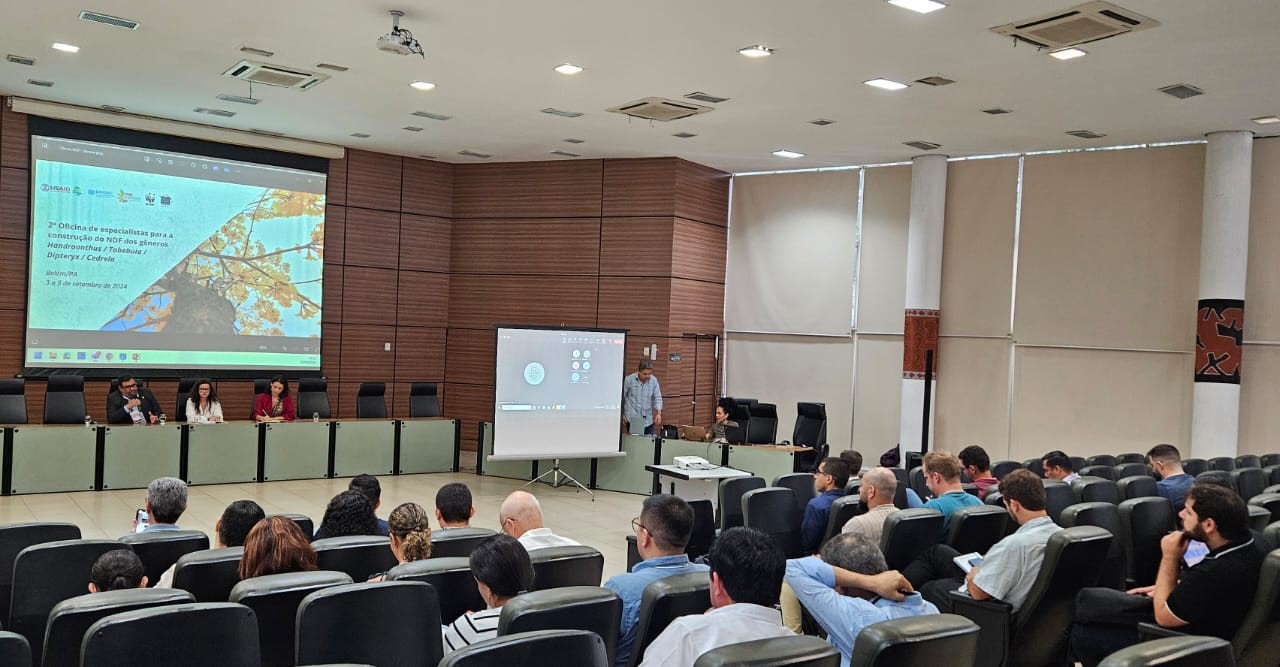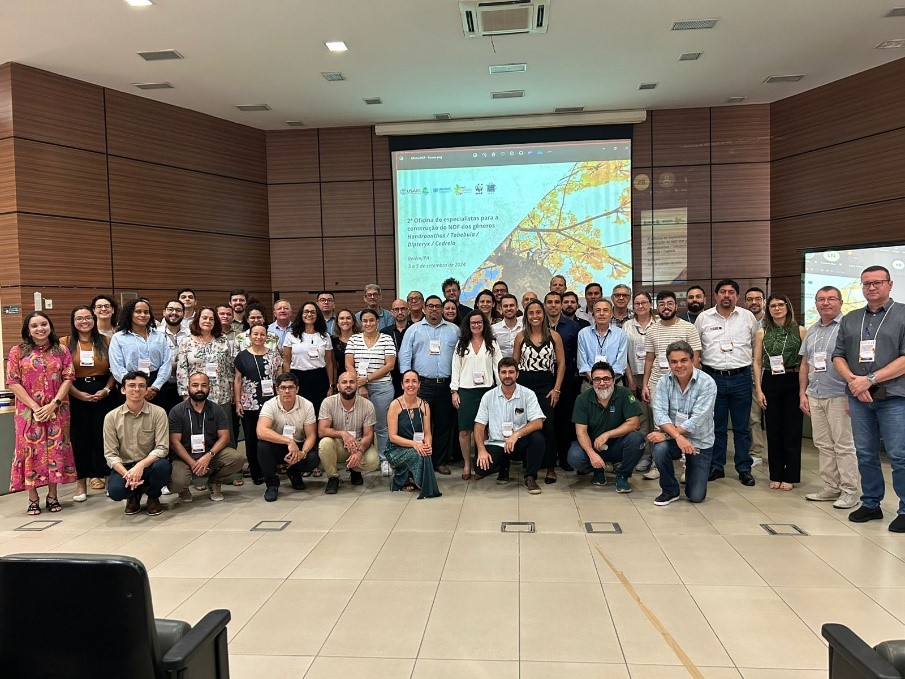
The United Nations Office on Drugs and Crime (UNODC) Brazil, through the ECOS project - Regional Cooperation to Combat Environmental Crimes, in partnership with the Brazilian Institute for the Environment and Renewable Natural Resources (IBAMA), brought together national and international experts in Belém (PA), from 3 to 5, to continue drafting the Non-Detriment Finding Report (NDF) for the timber species Handroanthus, Tabebuia Dipteryx and Cedrela. The drafting of this document began earlier this year and has already received contributions during the first workshop held in Brasilia in June 2024.
The second round of discussions for drawing up the NDF, held in Pará, was attended by more than 120 participants in a hybrid event, including representatives from federal, state, and municipal environmental bodies, as well as international institutions from Portugal, Peru and Ecuador, civil society, academia, the Public Prosecutor's Office and the productive sector. The meeting provided an opportunity to expand on the information gathered during the first workshop, as well as to share and debate forest control standards and systems and the European Union's new import rules, valid from 2025.

What is an NDF?
The Non-Detriment Finding (NDF) is a technical document issued by the scientific authorities of the Convention on International Trade in Endangered Species of Wild Fauna and Flora (CITES) that determines the possibility of legally exporting species listed in its appendices, ensuring that international trade in their products is carried out in a way that does not harm the maintenance of the species.
New species
During the latest editions of the Convention of the Parties to CITES (CoP18 and CoP19), in 2019 and 2022, member states decided to include the genera Handroanthus, Tabebuia Dipteryx, and Cedrela (the first two popularly known as ipe and the others as cumaru and cedar, respectively) in Appendix II of the Convention, which lists species that could become endangered if trade is not controlled.
With this new determination, the new international standards will come into force on 25 November and all exports of wood of these types must be preceded by a CITES permit issued by IBAMA.
The coordinator of the ECOS project in Brazil, Natalia Milanezi, explained that the partnership between UNODC and IBAMA will help the country adapt to the new rules. “Based on UNODC mandate in Brazil, which includes tackling transnational environmental crimes, such as timber trafficking, supporting IBAMA in the development of the NDF is in line with international efforts to preserve biodiversity,” she said.
The presentation of the final NDF document is scheduled to take place early November, along with training for the new CITES administrative authorities who will be appointed by IBAMA to analyse and issue timber export licences.
ECOS - Regional Cooperation to Combat Environmental Crimes is a regional project that began its activities in Brazil in 2022 and has been working with Brazilian authorities to combat wildlife trafficking, forest crimes, those in the mining sector and the fishing value chain. It is also present in Colombia, Ecuador, Guyana, Peru and Suriname. ECOS is supported by the United States Agency for International Development (USAID).